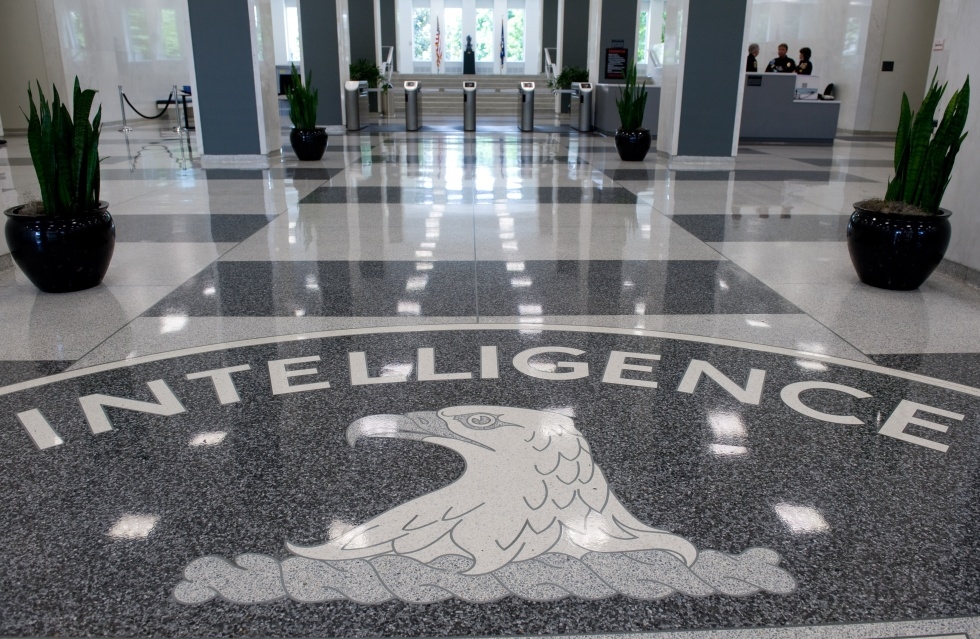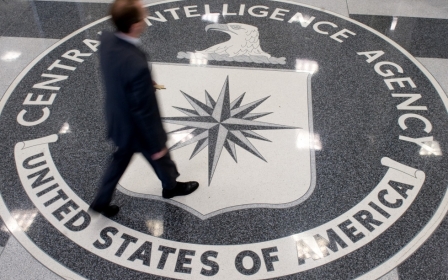Torture scandal unlikely to clip CIA wings: experts

Detailed revelations of the torture used by George W. Bush-era operatives against Al-Qaeda suspects are only the latest morale-sapping scandal to envelop the Central Intelligence Agency.
But the searing US Senate Intelligence Committee report on CIA enhanced interrogation techniques is not likely to hamstring the nation's premier spy shop or erode its power in the post-9/11 era, lawmakers, experts and former intelligence agents predicted Wednesday.
Criticism has trailed the CIA for decades, from the Bay of Pigs fiasco of 1961 and the Iran-Contra affair of the 1980s, to false intelligence of weapons of mass destruction in Iraq and the humiliating expulsion from Germany of a CIA station chief this year.
But while the CIA's reputation clearly took a hit with the 500-page torture report that documented extensive abuses and the misleading of Congress and the White House, the agency will remain a vital force for intelligence gathering worldwide.
Funding for the secretive agency has ballooned by billions of dollars in the years since Al-Qaeda's attacks on the United States in 2001, and its workforce has grown.
And despite Senate Intelligence Committee chair Dianne Feinstein calling the CIA's actions "a stain on our values and on our history," Congress for the most part backs the covert operations seen as intrinsic to battling adversaries like the Islamic State.
"This administration and almost surely those to come will continue to rely on the CIA for traditional intelligence work as well as counterterrorism operations around the world," intelligence expert William Banks, director of Syracuse University's Institute for National Security and Counterterrorism, told AFP.
"The agency really is essential to preserve US national security interests now and going forward. The torture episode is abhorrent, I believe, but aberrant."
The CIA has undertaken risky operations for every US president since its creation in 1947. It was empowered with unique abilities to spy, blackmail and even kill overseas in the goal of prevailing over America's foes.
Backing overall goals
Even those who most stridently criticized CIA abuses, like Democratic Senator Mark Udall, back its overall goals.
Despite his intense half-hour critique on the Senate floor of a CIA that "refuses to even acknowledge what it has done," and his demand that director John Brennan resign, Udall predicted that the torture report could have a beneficial impact on the CIA.
"It will make the agency more effective because we will rebuild trust on the part of the American people," Udall told AFP after his speech.
The Senate report and improved oversight will help America "find that right balance between secrecy and democratic principles."
Republican Senator Lindsey Graham swept aside suggestions that the CIA's vast budget would be reined in as a form of punishment.
Experts said the intelligence community has been swamped by a perpetual state of heightened threats to US interests since 9/11, and that such challenges are unlikely to diminish -- reinforcing the necessity for a strong CIA.
"The present flap will enter lore about the CIA that will be repeatedly invoked for years to come, and in that sense will have a lasting impact on the reputation of the agency," said Georgetown University professor Paul Pillar, a 28-year CIA veteran.
"But the country needs a civilian intelligence service, and so the agency will still be around for years to come."
'Inexcusable crimes'
Meanwhile, former National Security Agency contractor Edward Snowden said Wednesday that the United States had committed "inexcusable crimes" during its torture programme.
Detainees were beaten, waterboarded -- some of them dozens of times -- and humiliated through the painful use of medically unnecessary "rectal feeding" and "rectal rehydration."
"We saw individuals who actually lost their lives as a result of detention, as a result of the treatment they received under the torture programme," Snowden said.
"They died after being chained to a concrete floor in an unheated room, half-naked."
Snowden also took aim at Washington's decision not to prosecute those involved.
"If the US can allow its officials to torture and not hold them to account, what does this mean for other more totalitarian states, in Asia and in Africa and elsewhere around the world?" he asked.
"These are things that leave a stain on the moral authority of the United States government and if we do not prosecute and hold them to account, we cannot move forward as a society."
'Full of crap'
Meanwhile, former US vice president Dick Cheney on Wednesday blasted the Senate report detailing torture of "war on terror" detainees, calling it "terrible" and "full of crap."
Cheney, who was vice president under George W. Bush when the brutal "enhanced interrogation techniques" were used, said the program was entirely justified.
"We did exactly what needed to be done in order to catch those who were guilty on 9/11 and to prevent a further attack, and we were successful on both parts," he told Fox News.
Cheney suggested that interrogators had to be tough.
"What are we supposed to do -- kiss him on both cheeks and say, ‘Please, please, tell us what you know?’ Of course not."
Supporters and critics of the CIA program continue to lock horns over cases that are more than 10 years old.
But one fact is not in dispute: that under torture, many detainees invented intelligence that sent the CIA down several blind alleys.
"I know from personal experience that the abuse of prisoners will produce more bad than good intelligence," said US Senator John McCain, who was subjected to torture after being captured during the Vietnam War.
"I know that victims of torture will offer intentionally misleading information if they think their captors will believe it.
"I know they will say whatever they think their torturers want them to say if they believe it will stop their suffering."
Middle East Eye propose une couverture et une analyse indépendantes et incomparables du Moyen-Orient, de l’Afrique du Nord et d’autres régions du monde. Pour en savoir plus sur la reprise de ce contenu et les frais qui s’appliquent, veuillez remplir ce formulaire [en anglais]. Pour en savoir plus sur MEE, cliquez ici [en anglais].




